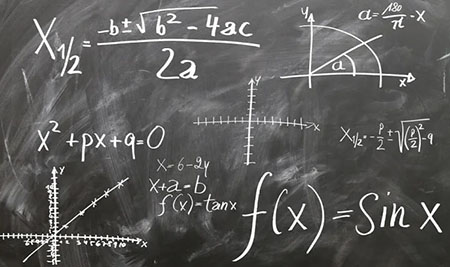by WorldTribune Staff, April 17, 2023
With the failure rate soaring for eighth grade algebra, the San Francisco Unified School District decided in 2015 to delay the class for all students until the ninth grade.
The idea was to place low, average, and high achieving students in the same classes with the aim of improving mathematics capabilities for black and Hispanic students who would then enroll in advanced math, independent journalist Joanne Jacobs noted in an April 14 report.
 It didn’t work.
It didn’t work.
“Large ethnoracial gaps in advanced math course-taking … did not change,” said a study by a team of Stanford professors.
The study found that black students were not more likely to enroll in AP math while Hispanic enrollment increased by just one percentage point.
“Overall, there was no change in the number of students receiving credit for advanced math classes, or the number taking math in 12th grade,” Jacobs noted.
Test data from 2015 to 2019 shows that racial “achievement gaps have widened,” blogger Tom Loveless wrote in March of last year. The district “is headed in the wrong direction on equity.” Black and Hispanic 11th-graders in San Francisco earned “appalling” scores on the state math test, “about the same as or lower than the typical fifth-grader.”
San Francisco Unified, meanwhile, boasted that algebra failure rates had dropped. Families for San Francisco, a parent group, analyzed the data and found that the failure rates dropped only after the district cut the end-of-course exam.
“Algebra for none” made it harder for achievers to succeed without helping low achievers, Fordham’s Jeanette Luna noted.
Families of high-achieving students faced a “nightmare of workarounds” to get their children on track for advanced math, Rex Ridgeway and David Margulies noted in a San Francisco Examiner commentary. “Families with resources turn to fee-required online algebra 1 courses in eighth grade, outside the public school system, or enroll their kids in private schools.”
One of the authors of the Examiner commentary noted: The district “will take credit for my granddaughter’s mathematical success as proof their policies work. In reality, this took two of her summers and nearly $2,000.”
In a lawsuit filed by a group of parents against the San Francisco school disrict, lead petitioner Annesa Flentje states: SFUSD “kids with privilege can advance in mathematics, and those without privilege cannot advance. Ironically, SFUSD made these changes in the name of equity, but putting in barriers to accessing (advanced courses) is not equitable. . . . those with privilege are opting into private school.”
Membership . . . . Intelligence . . . . Publish
